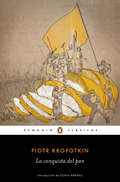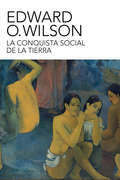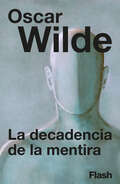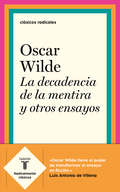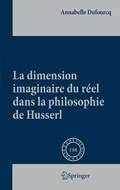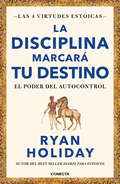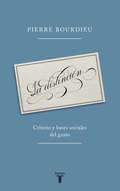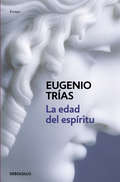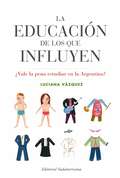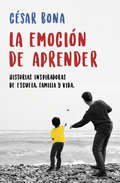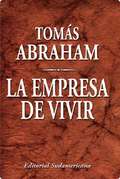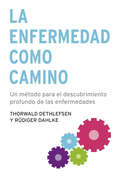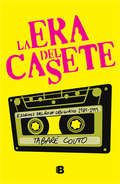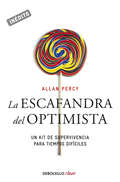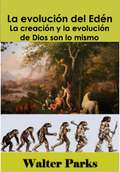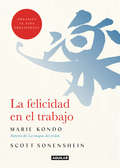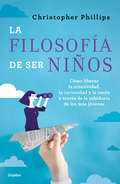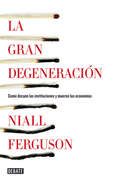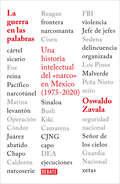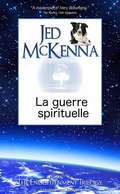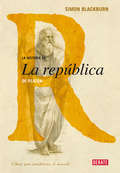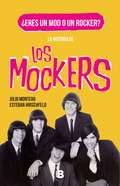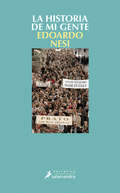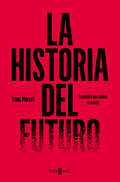- Table View
- List View
La conquista del pan
by Piotr KropotkinLos mejores libros jamás escritos. «Tenemos la audacia de pensar que cada uno debe y puede comer tanto como necesita, que es por medio del pan para todos que vencerá la revolución.» La conquista del pan es un clásico del anarquismo ruso y del comunismo libertario escrito en 1892 por Piotr Kropotkin, el «príncipe anarquista», desde el exilio. Este aristócrata de cuna perseguido por el régimen zarista ofrece un retrato terrible y desolador de los años convulsos previos a las revoluciones de 1905 y 1917, en los que la vida en el palacio de Invierno contrastaba con la situación atroz de los campesinos. Formulación práctica y teórica del comunismo anarquista, sus páginas describen con virulencia los procesos de apropiación de la tierra que se hallan en la base del capitalismo y denuncian la explotación y la ausencia de cualquier protección social ante el enriquecimiento de una minoría. La introducción de Sonia Arribas resigue los episodios más relevantes de la vida del autor para analizar en profundidad el origen de su pensamiento y el impacto de una obra que constituye un clásico indiscutible de la filosofía política.
La conquista social de la Tierra
by Edward O. Wilson¿De dónde venimos? ¿Qué somos? ¿Adónde vamos? En una obra apasionante que culmina el trabajo de toda una vida, Edward O. Wilson plantea estas tres cuestiones fundamentales y demuestra que la religión, la filosofía y la reflexión no pueden dar respuestas por sí solas, y que la única forma realista de resolver el enigma de nuestra condición humana pasa por la erudición científica. El más insigne sucesor de Darwin rediseña la historia de la evolución y recurre a su vasto conocimiento de la biología y del comportamiento social para revelar cómo la "selección de grupo" puede ser el único modelo que explique el origen del hombre, su dominación, y su posterior conquista del planeta. El resultado es una obra revolucionaria, la historia de la evolución humana y animal más importante desde El origen de las especies.
La decadencia de la mentira
by Oscar WildeUna defensa del arte por el arte clave para descubrir el pensamiento y la estética de Oscar Wilde. El arte ha caído en la cárcel del realismo y ha perdido toda la libertad creativa. Y, para huir de este culto a los hechos, es necesario reivindicar el papel de la mentira y el artificio en las obras. Mediante un diálogo repleto de paradojas y de la ironía característica del autor, Oscar Wilde evidencia la necesidad de escapar de toda intención moralizadora en la obra artística. Puesto que no hay nada más real que el arte, este debe existir por sí mismo y evitar ser un reflejo de una realidad que no haría más que corromperlo. «Oscar Wilde tiene el poder de transformar el ensayo en ficción.» Luis Antonio De Villen
La decadencia de la mentira y otros ensayos
by Oscar Wilde«Oscar Wilde tiene el poder de transformar el ensayo en ficción.»Luis Antonio De Villena Estos textos -«La decadencia de la mentira», «El critico como artista», «Pluma, lápiz y veneno», «La verdad de las máscaras» y «Retrato del señor W.H.»- muestran quién fue el Wilde conversador, serio, esteticista y doctrinario, supremo evocador intelectual. Contienen sus páginas de crítica fundamentales, y quizá las más originales que escribiera nunca. La mayoría de sus ideas, que escandalizaron a multitud de intelectuales, son las hoy vigentes entre la critica intelectual mundial. ------------- radical: adj. Perteneciente o relativo a la raíz. «Clásicos Radicales» nace con la misión de recuperar algunos de los libros más emblemáticos del sello que en su día formularon una idea nueva u ofrecieron una mirada original y pertinente sobre las grandes cuestiones universales. Ausentes de las librerías durante demasiado tiempo pero recordados y buscados por los lectores más despiertos, estos textos esenciales de disciplinas como la filosofía, la ética, la historia, la sociología, la economía, la antropología, la psicología y la política mantienen su plena vigencia y vuelven hoy con fuerza para iluminar nuestro presente. -------------
La dimension imaginaire du réel dans la philosophie de Husserl
by Annabelle DufourcqCette étude propose une analyse précise de la conception husserlienne des images et de l'imagination. Il s'agit d'en recenser les principaux traits et de fixer les définitions des notions clés. L'enjeu de ce travail dépasse largement la seule question de la nature de l'imagination : la manière dont Husserl repense l'imaginaire implique un bouleversement profond de notre conception du réel même. Ce dernier se révèle être beaucoup moins implacable, plus spirituel et flottant qu'on ne le croit communément. On peut montrer corrélativement que cette conception originale de l'imaginaire apporte un éclairage nouveau sur la réflexion de Husserl concernant la crise.
La disciplina marcará tu destino: El poder del autocontrol (Las 4 virtudes estoicas #Volumen 2)
by Ryan Holiday«Ryan Holiday ha traído las antiguas enseñanzas del estoicismo a millones de lectores, desde atletas y políticos hasta directores ejecutivos».Good Morning America Un inspirador tributo al poder y la promesa de la autodisciplina; este es el segundo libro de la serie «Las 4 virtudes estoicas»Ryan Holiday, autor superventas de The New York Times. Para conquistar el mundo, uno debe conquistarse primero a sí mismo: las emociones, las acciones y los pensamientos. Eisenhower dijo que la libertad es la práctica de la autodisciplina. Cicerón definió la virtud de la templanza como el esplendor de la vida. Sin límites ni autocontrol, no solo nos arriesgamos a no alcanzar nuestro potencial y a perder lo que hemos logrado, sino que, además, nos aseguramos una vida de humillación y miseria. En este nuevo libro, Ryan Holiday defiende la templanza como la virtud más importante. A lo largo de la historia ha recibido distintos nombres —autocontrol, disciplina…— pero todos hacen referencia a lo mismo: a gobernar en lugar de ser gobernado; a establecer tus propios límites; a marcar tus propios hábitos. Todos los grandes de la historia han practicado esta forma de autodominio, desde la leyenda del béisbol Lou Gehrig, hasta la reina Isabel II, la escritora Joyce Carol Oates, el emperador Marco Aurelio y Martin Luther King Jr., ministro y líder del movimiento por los derechos civiles. En una época de excesos y desorden, la autodisciplina es ahora más necesaria que nunca. ¿Te atreves a cavar hondo para encontrarla? Y, más importante, ¿la usarás? Solo con autodisciplina podrás dirigir tu vida rumbo a la verdadera realización. La crítica ha dicho:«Una lectura ágil y absorbente».Annie Duke, autora del best seller Thinking In Bets «Un poderoso argumento a favor de las virtudes y los valores por los quedeben regirse los líderes de hoy».Almirante James Stavridis, excomandante supremo de las Fuerzas Aliadas de la OTAN
La distinción
by Pierre BourdieuUna reformulación de todas las tradicionales interrogaciones sobre lo bello, el arte, el gusto y la cultura. Los sujetos sociales se diferencian por las distinciones que realizan -entre lo sabroso y lo insípido, lo bello y lo feo, lo distinguido y lo vulgar- en las que se expresa o se traiciona su posición. El análisis de las relaciones entre los sistemas de enclasamiento (el gusto) y las condiciones de existencia (la clase social) conduce así a una crítica social del criterio selectivo que es, inseparablemente, una descripción de las clases sociales y de los estilos de vida. Podría comenzarse la lectura de este libro por el capítulo final, titulado «Elementos para una crítica "vulgar" de las críticas puras», que pone de manifiesto las categorías sociales de percepción y apreciación que utiliza Kant en su análisis del juicio del gusto. Pero lo esencial de esta ya clásica obra del sociólogo francés Pierre Bourdieu se encuentra en la investigación que, al precio de un enorme trabajo de encuesta empírica y de crítica teórica, conduce a una reformulación de todas las tradicionales interrogaciones sobre lo bello, el arte, el gusto y la cultura.
La edad del espíritu
by Eugenio TríasÉste es el punto de partida que nos propone un viaje distinto a través de la historia del conocimiento, una nueva odisea que presenta una visión global del pensamiento y del ser. Un diálogo entre la luz de la razón y la sombra de lo irracional, las dos vertientes que conforman el espíritu humano y lo convierten en lo que es: ni dios ni animal sino un ser fronterizo, hijo del mestizaje de ambas naturalezas."Un libro sumamente importante porque toma en consideración todas las religiones de Oriente y Occidente"JOSÉ LUIS ARANGUREN
La edad del espíritu
by Eugenio TríasUn viaje distinto a través de la historia del conocimiento. La experiencia de lo sagrado, lo sobrehumano, ha ido transformándose y modificando a su vez la forma en que el hombre concebía el universo y a sí mismo. Éste es el punto de partida desde el cual se nos propone un viaje distinto a través de la historia del conocimiento, una nueva odisea que presenta una visión global del pensamiento y del ser. Un diálogo entre la luz de la razón y la sombra de lo irracional, las dos vertientes que conforman el espíritu humano y lo convierten en lo que es: ni dios ni animal sino un ser fronterizo, hijo del mestizaje de ambas naturalezas. Reseña:«Un libro sumamente importante porque toma en consideración todas las religiones de Oriente y de Occidente.»José Luis Aranguren
La educación de los que influyen: ¿Vale la pena estudiar en la Argentina?
by Luciana VazquezUna reflexión acerca de la educación formal en la Argentina a partir deentrevistas a treinta y cinco empresarios, intelectuales, economistas,políticos, hombres de la Iglesia y artistas que contaron sus historiasformativas y respondieron sobre la educación que planean para su hijos. ¿Cómo fue la educación formal de los que influyen y mandan en todo? ¿Estan importante decidir qué tipo de educación recibirán nuestros hijos? ¿Serán los abanderados los líderes del futuro?Éstas son algunas de las preguntas fundamentales que se plantea LucianaVázquez. Después del largo reinado del coeficiente intelectual y laexcelencia académica, después de la hegemonía de la inteligenciaemocional y de la inteligencia social de Daniel Goleman, después deldesembarco del educando-a-los-niños-para-hacer-dinero de Robert Kiyosakiy ahora que la formación en valores parece ganar adeptos, La educaciónde los que influyen se pregunta dónde pusieron el foco aquellos quelograron el reconocimiento público.Parece un libro de entrevistas pero es más bien un ensayo sobre lajusticia y la virtud, sobre el destino y la vocación. La gran preguntaes: ¿Vale la pena estudiar en la Argentina? Y las respuestas queencuentra Luciana Vázquez son tan paradójicas como inesperadas.
La emoción de aprender: Historias inspiradoras de escuela, familia y vida
by César Bona«Un viaje hacia la diversidad, una reflexión sobre el éxito, el fracaso y las expectativas que condicionan a niños, niñas y adolescentes y sobre cómo podemos darles la posibilidad de construir su propio futuro.» ¿Qué es el éxito para ti? ¿Y el fracaso? Y si piensas en niños y niñas, ¿qué responderías? Cuando miras a los que te rodean, ¿consideras que estás libre de prejuicios? ¿Hay ciertas creencias que distorsionan tu manera de ver la vida? Como docentes, muchas cosas no nos las enseñaron en la universidad; como padres, vamos aprendiendo a base de ensayo y error. La empatía es un juego que hay que practicar a diario, y eso no implica alejarse de lo que eres sino acercarse a lo que la otra persona es y siente. En el mundo hay casi 8.000 millones de personas, cada una diferente al resto. Las diferencias son un valor y no un inconveniente. Cuando entendamos eso, comenzaremos a ver la vida de otra manera, con la riqueza que proporciona la diversidad. En este libro hallarás historias inspiradoras que invitan a la reflexión sobre todas esas preguntas y sobre el modo en que miramos a los que nos rodean. «No es lo que miras, es lo que ves», decía Thoreau. Y cada palabra, cada gesto, cuenta. La crítica ha dicho...«César está abriendo nuevos horizontes para los niños. Está creando líderes del futuro, animándolos a tomar las riendas para emprender acciones y cambiar actitudes y prácticas en sus sociedades.»Jane Goodall «Mi primer hallazgo de 2015 ha sido conocer la existencia del profesor César Bona. Es un placer comprobar que, de vez en cuando, aparece un personaje humilde capaz de despertar admiración unánime [...]. Enseña a sus alumnos a disfrutar de la naturaleza y de los animales, ya hacer películas, y a jugar, y a imaginar y a pensar en los demás. También les enseña inglés,historia y matemáticas, pero dice que lo más importanteparaél es que sean buenas personas.»Nativel Preciado, Tiempo.
La empresa de vivir
by Tomás AbrahamEl autor analiza y discute la empresa como nuevo monumento cultural, la tarea de los expertos en calidad de vida y su función en una nueva sociedad terapéutica. Tomas Abraham inicia una pesquisa filosófica y no se detiene ante las impugnaciones que dictan «el buen gusto» y la convivencia (la que esconde las contradicciones para simular seriedad y rigor intelectual). No lo detiene. Observa, analiza, compulsa. Sus preguntas no interrogan esas zonas del discurso para las cuales se han inventado ya benévolas excusas, sino las otras, las peligrosas. Desde 1989, reflexiona Abraham, el factor económico es la clave que permite descifrar los anhelos y las frustraciones de la sociedad. ¿Por qué? Porque el factor económico no se reduce a la economía, no se limita a la producción y a la distribución de riquezas sino que acusa la visible emergencia de nuevas formas de vida. El factor económico revela el diagrama de las mutaciones culturales. De las historias de vida de los archimillonarios al encuadre histórico de la ideología empresarial, de «la puesta en sorna» (con el mayor respeto) de la literatura de autoayuda a la meditación sobre la moral y el dolor en los campos del exterminio, La empresa de vivir, como los libros anteriores del autor, traza una línea osada y firme e incorpora al pensamiento argentino una nueva manera de hacer las cosas. Una nueva manera capaz de abrir discusiones aparentemente concluidas o censuradas, de expandir los efectos de un conflicto intelectual hacia áreas desprestigiadas o ignoradas de inaugurar una pasión para abolir la ironía autoindulgente y los entredichos ufanos. Porque logra trasformar el malestar en un problema y la dificultad y el obstáculo en una interrogación crítica, La empresa de vivir es un libro decisivo. Y algo más, algo que merece nuestra gratitud o por lo menos nuestra atención: porque ese libro decisivo e importante es también una investigación filosófica donde la busca de la verdad no renuncia al humor y se permite reír y hacernos reír.
La enfermedad como camino: Un método para el descubrimiento profundo de las enfermedades
by Thorwald DethlefsenLa enfermedad como camino analiza el significado de los quebrantos de salud más habituales. No hay una diversidad de enfermedades curables, sino una sola enfermedad determinante del «mal estar» del individuo. Lo que llamamos enfermedades son en realidad síntomas de esta única enfermedad.Este libro analiza el significado de las infecciones, los dolores de cabeza, los trastornos cardíacos y los quebrantos de salud más habituales. Todos los síntomas tienen un sentido profundo para la vida de la persona: nos transmiten mensajes del ámbito espiritual, y de su adecuada interpretación dependerá nuestra capacidad de recuperarnos. Se incluye un capítulo especial dedicado al problema del sida, así como un índice de enfermedades y una relación de las partes y los órganos del cuerpo con sus atributos psíquicos.
La era del casete: Escritos del rock uruguayo 1985-1995
by Tabaré CoutoUn libro que recorre las expresiones culturales y los principales referentes de los años 80. El rock, las publicaciones, la calle y el Uruguay post dictadura en un libro donde la voz es de los protagonistas de ese movimiento. Tabaré Couto un referente de la comunicación de esa época escribe y recopila notas que pintan una década, un movimiento que hoy es mirado con nostalgia. Los lectores encontrarán en este libro una plétora de información que proviene de una gran cantidad de publicaciones (artículos, entrevistas, reseñas de discos y conciertos) sobre rock uruguayo, aparecidas durante la década que va de 1985 a 1995. Tabaré Couto, activo participante de la movida que rodeó al rock de aquella época, relee, con prosa elocuente y con la ayuda de sus recuerdos, esas fuentes. Su memoria aporta no solo datos de importancia, sino también interpretaciones personales que arrojan nueva luz sobre aquel fenómeno. Pero tal vez lo más significativo de este trabajo sea su capacidad de ver, con la perspectiva que da el tiempo, con agudeza, nostalgia y autocrítica, no solo los hechos sino también las líneas de fuerza que caracterizaron ese momento histórico. Su visión de ese proceso, que incluye esclarecedoras alusiones al panorama político y social del Uruguay de aquellos tiempos, es no solo compleja e inteligente, sino que además está aderezada por la ecuanimidad de aquel que no ha vivido en vano. Eso no quiere decir que su mirada, a fuer de serena, sea distante. Por el contrario, este es un libro escrito desde el sentimiento y la emoción, por alguien que supo vivir el rock de aquellos tiempos pasionalmente. Gracias a este libro, la historia del rock uruguayo se ha vuelto más rica e inteligible. Gustavo Verdesio
La escafandra del optimista: Un kit de supervivencia para tiempos difíciles (Genios para la vida cotidiana #Volumen)
by Allan PercyEn La escafandra del optimista, de la serie «Genios para la vida cotidiana», el prestigioso Allan Percy nos proporciona las herramientas para encarar la vida con energía positiva y vencer al pesimismo. Los optimistas poseen un blindaje especial que los protege contra las dificultades: con la serenidad que proporciona una inmersión en el silencio del océano, quien piensa en positivo es capaz de actuar al margen del desánimo y de encontrar soluciones en aguas revueltas. Este libro explica cómo adquirir ese blindaje, la escafandra del optimista, además de procurar al lector un «kit de supervivencia» en el que se incluyen los siguientes instrumentos: - Un antídoto para cada idea pesimista, a la cual se antepone una idea optimista para afrontar la situación. - Una galería de personajes que demuestran con su ejemplo cómo una actitud positiva rompe todas las barreras. - Consejos y estrategias para ver el vaso «medio lleno» y llenar incluso la otra mitad. - Un anexo sobre las endorfinas, la nieve de San Juan y otros amigos del optimismo.
La evolución del Edén: Adán y Eva científicos: La creación y la evolución de Dios son lo mismo.
by Walter ParksLa Biblia nos dice que Dios nos creó en el Jardín del Edén. La evidencia científica nos indica que evolucionamos a partir de animales inferiores. La evolución del Edén analiza las dicotomías entre ambas teorías y vemos que son parte de lo mismo.
La felicidad en el trabajo
by Marie Kondo Scott SonensheinTU LUGAR DE TRABAJO ES MÁS IMPORTANTE QUE NUNCA. APRENDE CON MARIE KONDO A SACARLE EL MÁXIMO PARTIDO Y MEJORAR TU VIDA. El puesto de trabajo es un imán para el desorden y el caos. ¿Quién no se ha sentido agotado por reuniones improductivas, papeles revueltos, interminables correos electrónicos y tareas innecesarias? Todo esto consume tu motivación, limita tus posibilidades de progreso y socava tubienestar. La felicidad en el trabajo aplica el famoso método KonMari al espacio donde ejerces tu actividad laboral. Ofrece historias, consejos prácticos y estrategias para eliminar el desorden en el lugar donde trabajas y disfrutar de la productividad, el éxito y la felicidad que conllevan un entorno laboral y una mente ordenados. Los autores te guían mientras organizas tu vida laboral, ayudándote a desarrollar la confianza, a aumentar el éxito profesional y, por supuesto, a generar alegría.
La filosofía de ser niños
by Christopher PhillipsCómo liberar la creatividad, la curiosidad y la razón a través de la sabiduría de los más jóvenes. La niñez es nuestra plataforma de despegue, el periodo de la vida en el que el aprendizaje es más intenso, y adquirimos el conocimiento crítico y las habilidades que nos permitirán adaptarnos. Filósofos de todas las épocas han señalado que, con el paso del tiempo, los seres humanos tendemos a encogernos mental y emocionalmente. Desvirtuamos nuestra naturaleza -caracterizada por la curiosidad, la empatía, la razón, el asombro y el deseo de experimentar y entender- y, de esta manera, se va volviendo borroso nuestro sentido de identidad. Comenzamos nuestras vidas con un estallido moral, intelectual y creativo. Siguiendo las evidencias científicas que así lo demuestran, Christopher Phillips advierte que la niñez no es simplemente un estado de desarrollo, de transformación -de llegar a ser-, ni la adultez un momento de plenitud o acabamiento. Si aprovechamos las cualidades propias de la niñez, no estaremos condenados a volvernos seres desanimados y frágiles, sino que creceremos y viviremos guiados por el asombro, la curiosidad, la imaginación, el sentido de juego y la compasión. Explorando y explotando la filosofía de ser niños, podremos desarrollar ilimitadamente nuestro potencial. Vinculando filosofía, ciencias sociales, investigación neurocientífica y anécdotas personales, este libro propone una aproximación radicalmente distinta al tema de la frontera entre niñez y adultez, para mostrarnos que la forma como los niños ven y viven el mundo puede ser una clave para un desarrollo pleno, para alcanzar eso que los griegos llamaban areté o excelencia.
La gran degeneración: Cómo decaen las instituciones y mueren las economías
by Niall FergusonUn análisis de las causas del declive actual de occidente. Hace tiempo que se anuncia el declive de Occidente, pero ahora los síntomas de esa decadencia nos acosan: un crecimiento mínimo, una deuda asfixiante, una población envejecida, conductas antisociales. ¿Qué le pasa a la civilización occidental? La respuesta que ofrece Niall Ferguson es que nuestras instituciones, los complejos marcos dentro de los que una sociedad puede florecer o fracasar, están degenerando. El gobierno representativo, el libre mercado, el imperio de la ley y la sociedad civil: estos solían ser los cuatro pilares de las sociedades occidentales. Estas instituciones, más que ninguna ventaja geográfica o climatológica, permitieron el dominio global de Occidente a partir de 1500. En nuestra época, sin embargo, estas instituciones se han deteriorado de modo alarmante. Nuestras democracias han roto el pacto intergeneracional al dejar una pesada carga de deuda a nuestros hijos y nietos. Nuestros mercados cada vez están más distorsionados por regulaciones excesivamente complejas que son la enfermedad de la que pretenden ser la cura. El imperio de la ley se ha convertido en el imperio de los abogados. Y la sociedad civil es ahora la sociedad incivil, en la que esperamos que el Estado resuelva todos nuestros problemas. La gran degeneración es un poderoso y en ocasiones polémico alegato contra una era de negligencia y pasividad. Mientras el mundo árabe lucha por alcanzar la democracia y China avanza de la liberalización económica al imperio de la ley, europeos y estadounidenses malgastan el legado institucional construido a lo largo de varios siglos. Detener la degeneración de la civilización occidental, advierte Ferguson, requerirá líderes audaces y una reforma radical.
La guerra en palabras
by Oswaldo ZavalaUna historia intelectual de la hegemonía que funcionó como la plataforma para lanzar la “guerra contra el narco”: primero desde un plano simbólico y después como una campaña permanente de violencia organizada. Basado en una investigación de archivos oficiales, reportajes periodísticos, estudios académicos y producciones culturales sobre el tráfico de drogas, Oswaldo Zavala revisa el arco histórico del lenguaje en el que se inscriben un relato de guerra con personajes intercambiables en lugares variables que configuran la ilusión sobre el “narco” en nuestra sociedad contemporánea, con atención especial en los productos culturales sobre el tráfico de drogas en general. .
La guerre spirituelle
by Laura Dinraths Jed McKennaLes armes et les bombes sont des jouets pour enfants. Une véritable guerre est lancée, et vous y êtes invité. C’EST UNE INVITATION que vous pouvez accepter ou décliner. C’est une invitation à mener une guerre à nulle autre pareille ; une guerre où la perte compte comme un gain, le renoncement comme la victoire, et où l’ennemi que vous devez affronter – un ennemi d’une supériorité inimaginable – est vous-même. Dans La guerre spirituelle, la métaphore de la guerre apparaît rarement. Le livre nous expose plutôt la réalité vivante d’une femme très normale – une épouse et une mère à la carrière exigeante et au style de vie effréné – et ce qui se produit lorsqu’elle reçoit une invitation qu’elle ne peut refuser, bien malgré elle. Et nous rencontrons une autre femme, une femme qui a accepté cette invitation, s’est battue et a gagné. Lors des derniers chapitres de ce livre, nous participons à son eulogie, prononcée par Jed. La guerre spirituelle livre une accusation accablante et irréfutable de son propre public et de son propre genre, mettant en examen la spiritualité et la religion. Un crime terrible a été commis contre l’humanité, un crime d’oppression et d’assujetissement dépassant de loin 1984 d’Orwell. Nous sommes les victimes de ce crime, mais aussi ses auteurs. Notre motif est la peur, notre pêché l’ignorance, et les chaînes avec lesquelles nous nous asservissons sont nos croyances. « Croire signifie refuser de savoir ce qui est vrai. » -Friedrich Nietzsche La guerre spirituelle est un livre destiné à ceux qui veulent savoir ; à ceux qui veulent échapper à leur asile sombre et expérimenter une spiritualité directe et authentique ; à ceux pour qui il est temps de voir, de penser, de savoir, et, enfin, de laisser tomber leurs jouets.
La historia de La República de Platón
by Simon BlackburnLa república de Platón, sus orígenes, sus significados y su vigencia en nuestros días. «Ella [la injusticia extrema] es la tiranía que arrebata lo ajeno, sea sagrado o profano, privado o público, por dolo o por fuerza, no ya en pequeñas partes, sino en masa.» Platón, La República Tal vez Platón sea el filósofo más importante de la historia. Escrito en Atenas hacia el 375 a.C., La república es su diálogo más conocido. Su discusión de la ciudad perfecta, y la mente perfecta, sentó los cimientos de la cultura occidental y, durante más de dos mil años, ha estado en el corazón de la filosofía occidental. En este libro Simon Blackburn explica las ideas jurídicas, morales y políticas de La república, y examina su influencia en el mundo contemporáneo. Muestra cómo, desde san Agustín hasta Wordsworth y los filósofos del siglo XX, el pensamiento occidental ha sido, y sigue siendo, una serie de respuestas a uno de los libros más importantes del mundo.
La historia de los Mockers: ¿Eres un mod o un rocker?
by Julio Montero Esteban Hirschfeld«No alcanza con decir que Los Mockers son a los Rolling Stones lo que Los Shakers son a los Beatles: son el primer eslabón del ADN rockero del Río de la Plata y Sudamérica». Andrés Calamaro La historia de una de las bandas fundacionales y más influyentes del rock uruguayo con proyección internacional. «Los Mockers fueron banda y mito… Las historias que aquí se nos narran se repitieron e imitaron mil veces en posteriores décadas y yo mismo, humildemente, me siento identificado con su lucha y pasión». Enrique Bunbury «En Buenos Aires, años 65, 66, nos encontramos muchas veces… ¡Amigos de sueños y músicas! ¡Queridos Mockers!». Hugo Fattoruso «Celebro la aparición de este libro narrando la historia de Los Mockers. Con un solo álbum grabado en 1966, Los Mockers lograron trascender a través del tiempo». Litto Nebbia
La historia de mi gente
by Edoardo NesiUna poderosa historia a medio camino entre el texto de memorias y la denuncia de graves problemas que cuestionan el modelo de sociedad europeo. «Este premio no es para mí, sino para todos aquellos de los que hablo en el libro, y para mi ciudad, Prato [...] que sufre de una globalización sin gobierno y sin derechos.»Edoardo Nesi Ganador del Premio Strega 2011, uno de los más prestigiosos de Italia, La historia de mi gente es uno de esos libros singulares que cautivan la imaginación de lectores muy diversos y nos recuerdan que la autenticidad no sabe de etiquetas ni de géneros literarios. A partes iguales relato autobiográfico y texto de denuncia política, Nesi disecciona desde la experiencia personal y familiar las graves consecuencias que ha tenido y sigue teniendo para Europa la progresiva extinción del sistema económico más civilizado que haya conocido el hombre y su reemplazo por un modelo cuyo principal objetivo es la rentabilidad más elevada posible sin reparar en costes humanos. Novelista y traductor perteneciente a la tercera generación de una próspera familia de empresarios toscanos, Nesi rememora con una sinceridad sin paliativos la Edad de Oro de la industria textil de su país y reflexiona sobre su estado actual pues, al igual que tantas otras industrias europeas, ha sufrido el azote de la globalización. Con un lenguaje lleno de rabia e indignación, pero también de elocuencia y lirismo, Nesi transmite el dolor con el que contempla el silencio de las fábricas desmanteladas y la desaparición de una forma digna de entender las relaciones laborales que, además de generar riqueza y bienestar para la comunidad, contribuyó a consolidar la paz social. La crítica ha dicho...«La historia de mi gente es uno de esos puñetazos que de vez en cuando la literatura lanza al mundo.»Sandro Veronesi «La historia de mi gente de Edoardo Nesi es un canto sublime, tanto épico como lírico, a la industria y al trabajo humano.»Antonio Pennacchi «Nesi da voz a una lectura no global de la actualidad, privada y no política, que pone de manifiesto la experiencia de quien ha vivido la interrupción de una historia maravillosa y no alcanza a comprender la razón.»Dario di Vico, Corriere della Sera «¿Sabéis qué haría yo si mañana me convirtiera en líder del Partido Democrático? Cogería este valiente libro publicado por Bompiani y lo convertiría en un capítulo de mi proyecto político. La historia de mi gente contiene el amor de un pueblo por sus raíces, de una comunidad por su tierra, de una ciudad por su industria.»Massimo Giannini «Pocos escritores han conseguido transmitir como Nesi el rostro incívico de la ideología globalista.»Luciano Lanna, Secolo d'Italia «Un libro hermoso y conmovedor [...] Se puede estar de acuerdo o no con su contenido, pero se le debe reconocer una gran virtud: nos hace pensar.»Giorgio Marabini, Sabato Sera
La historia del futuro: La palabra que cambió el mundo
by Isaac MarcetFrente al momento actual, todos nos preguntamos: ¿podremos sobrevivir a los retos del presente? ¿Tenemos tan siquiera un futuro? Pocas épocas han sido tan decisivas como la nuestra: cambio climático, sobrepoblación, bombas nucleares, inteligencia artificial... No obstante, nadie se está formulando la pregunta clave: ¿qué es el futuro? O, mejor aún, ¿quién lo inventó para esclavizarnos? La historia del futuro es un ensayo que relata el origen de la idea que definió y condenó a nuestra civilización. Sin embargo, más que otro libro sobre el futuro, este es un relato sobre cómo recobrar el tiempo más allá del tiempo.Hallaremos las respuestas que buscamos entre los antiguos mitos babilónicos, los enigmas del tiempo del Antiguo Egipto o la creencia en el fin del mundo de la tradición hindú y la cristiana.Sin excepción, todos ellos nos recordarán una sencilla enseñanza: hasta que no nos iniciemos en los misterios del tiempo, nunca seremos libres. Solo de esta manera, podremos volver a tener un futuro después del futuro.«El tiempo es el problema esencial del hombre. Si supiéramos qué es el tiempo, sabríamos qué es el mundo, quiénes somos. El tiempo es el problema. Es el enigma».Jorge Luis BorgesIsaac Marcet es el creador del medio de comunicación PlayGround.Desde el año 2008, fecha de su fundación, hasta el año 2022, fue su director y editor. También, ha sido el creador y conductor de proyectos de podcasting de pensamiento y política como Salir del Grupo o Generación Futuro, además de plataformas de innovación democrática como El Futuro es Ahora.
